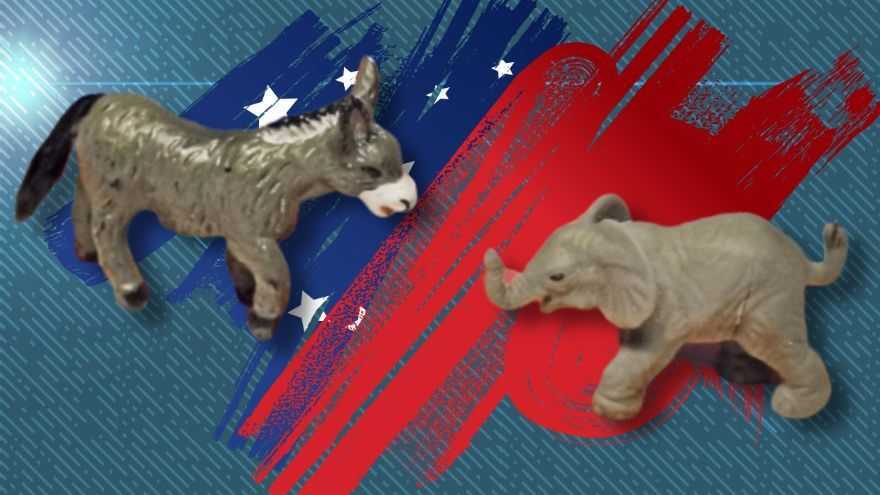Americans are gravitating farther from one another on most important issues, including immigration, healthcare, foreign trade, and education.
The trend, which Gallup has documented since 2003, confirms that the division among Americans who identify as either Republican or Democrat has increased in recent decades.
Researchers have tracked partisan stances on 24 issues that are frequently part of political discussion by polling Americans approximately every ten years since the early 2000s.
“Political polarization remains an enormously important part of the U.S. political landscape. There are significant — and in some instances, huge — partisan differences today in views on all 24 issues included in this analysis,” noted the researchers.
“Americans’ political identity arises from a number of sources, and it’s possible that Americans’ position on issues helps them settle in on their partisanship,” Gallup’s team added. “And, once a person has established their partisan leanings, the party’s platform (often amplified by partisan media consumption) can in turn be a factor in reinforcing the individual’s position on social and political issues.”
The consequences of stark political polarization are “widespread” according to the report.
The researchers observed that there has been a significant change in the division between Democrats and Democrat-leaning participants and their Republican and Republican-leaning counterparts when asked if the government has too much power.
“This reflected, at least in part, the continuing aftermath of the 9/11 terrorist attacks, a time marked by unusual public consensus on the role of government in addressing major problems like terrorism,” noted Gallup. “By 2013, however, during the Democratic presidency of Barack Obama, Republicans had become much more likely than Democrats to believe the federal government has too much power, creating a large partisan gap in 2013 that has continued this year.”
Democrats have become increasingly concerned about environmental issues and are now more likely than ever to believe that global warming is mainly caused by human activity. There was also a jump in the percentage of Democrats who believe abortion should be legal under any circumstance.
Republicans were slightly more satisfied with K-12 education in 2003 than Democrats. Over the last twenty years, Republicans have gone through a significant decline in satisfaction — resulting in a 30% gap.
Republicans have become increasingly in favor of decreasing immigration while Democrats are less likely than in previous years to say immigration should be decreased — causing a 40% gap between respondents based on party affiliation. More Democrats believe immigration is good for America (83%) while fewer Republicans than years previously agree (52%).
“The division in issues positions between parties, for one thing, can mean there is little variation within parties, which in turn can mean that choice of candidates in primaries can depend on how strongly the candidates profess allegiance to the party’s positions and on non-issues factors such as personality, character and history,” stated Gallup.

